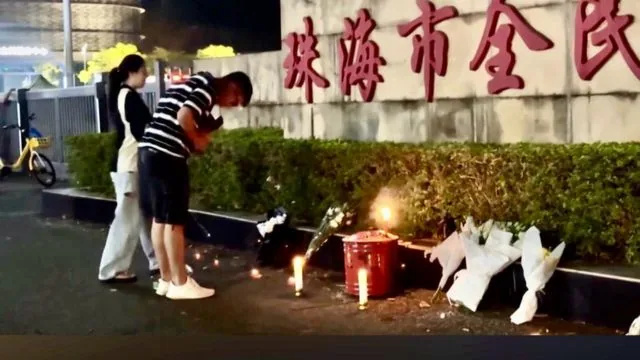While foreign media believe Chinese are focused on predicting Trump’s behavior toward the country, this may be true for some politicians and diplomats only. Judging from social media, what worries the Chinese most is an epidemic of murders where assassins kill victims randomly selected, people they did not know before.
On November 11, a man crashed a car into people exercising in a stadium in Zhuhai, Guangdong, killing 35 and injuring 45, including senior citizens and children. This came exactly two weeks after a man on October 23 in Beijing attacked passersby on October 28, wounding five including minors. The list of such incidents is long, although the Zhuhai attack was the deadliest. It was also the only one that got a personal reaction from Xi Jinping, who called for the “most severe punishment,” meaning the death penalty, for the perpetrator.
What these cases have in common is that the assassins did not know the victims and selected them at random. They just wanted to kill somebody to express their rage at society. According to the police, the Zhuhai mass murder was unhappy about how his divorce was settled.
Xi’s intervention did not mean that the CCP likes that the incident is discussed, though. Flowers and candles citizens spontaneously left outside the stadium were quickly removed by the police.
Another curious answer to the Zhuhai and other murders was increasing the Internet censorship on stories and searches about Zhang Xianzhong (張獻忠). Actually, censorship had started in 2021, together with the murder epidemic, but became stricter after Zhuhai.
Zhang was a peasant rebel who during the transition from the Ming to the Qing dynasties raised an army and controlled for a few years a large area in Sichuan as its self-proclaimed “emperor.” He was defeated and killed by the Qing in 1647. Such rebels are numerous in Chinese history, and some are even hailed by the CCP as proto-Marxist. Zhang, however, is proverbially associated with massacres of opponents in Sichuan that might have killed up to one million, or one third of the then local population, and with an apocryphal tale created by Qing propaganda that he adopted as his motto the “Seven Kills,” or the word “Kill!” repeated seven times.

The great Chinese leftist writer Lu Xun died in 1936 and was regarded by some in the CCP as an unorthodox and dubious Marxist but was held in high esteem by Mao. He wrote about Zhang and suggested that as there is an “art for art’s sake” the rebel cultivated “killing for the killing’s sake.” Not surprisingly, Lu Xun’s text was quoted and posted on social media after the Zhuhai incident—and eliminated by the censors.
That Zhang Xianzhong, or legends about him, may inspire contemporary mass killers seems improbable. On the other hand, perhaps Zhang never practiced the art of murder for murder’s sake but some in China today do. Censorship signals that the CCP wants to avoid a serious debate on why these incidents are repeating themselves. They are the other side of the much-discussed attitude of “lying flat” (躺平), or doing nothing or reducing work to the minimum, an attitude of passive reject of society involving thousands if not millions of Chinese. The words “lying flat” (躺平) are also occasionally censored on the Internet.
The refusal of Chinese society may be expressed by silent withdrawal or, happily in rarer cases, senseless violence. Both are evidence of the bankruptcy of the official propaganda and ideology. Those who “lie flat,” and those who kill, are telling the world that the “great rejuvenation of the Chinese nation” promised by Xi Jinping is just a lie.
/bitterwinter.org

